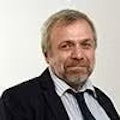Environmental Sensing: Polarimetric LIDARs for Crop Monitoring

This webinar was originally held on December 17, 2024.
Now available for On Demand viewing!
Duration: 1 hour
Already registered? Click here to log in.
Summary
As discussed at the World Summit on Food Security, the world's population is projected to reach 10 billion by 2050, which will boost increased food production. This challenge and expected modest economic growth stimulated growing interest in Precision Agriculture (PA) techniques, which are crucial for addressing the technological challenges in remote sensing plants' pathogens and water stress. Among these techniques, polarimetric LIDARs stand out as the most advanced and cost-effective sensors, proving their efficiency in precision farming based on remote sensing platforms.
This webinar will present the state-of-the-art polarimetric LIDARs and approach for mapping plants' water stress conditions suggested by Aston Institute of Photonic Technologies (AIPT). The innovative step vs the current state-of-the-art polarimetric LIDARs will be done by applying all fibre designs and merging polarimetry with existing LIDAR intellectual property patented by Aston.
Speakers
Sponsored by:


